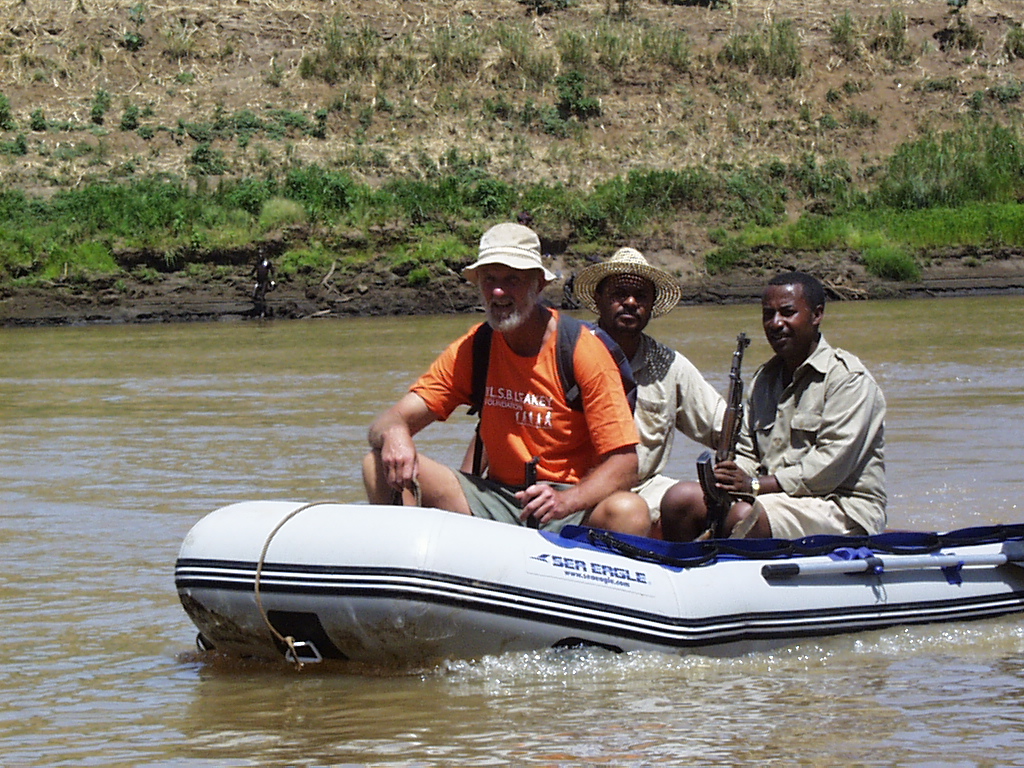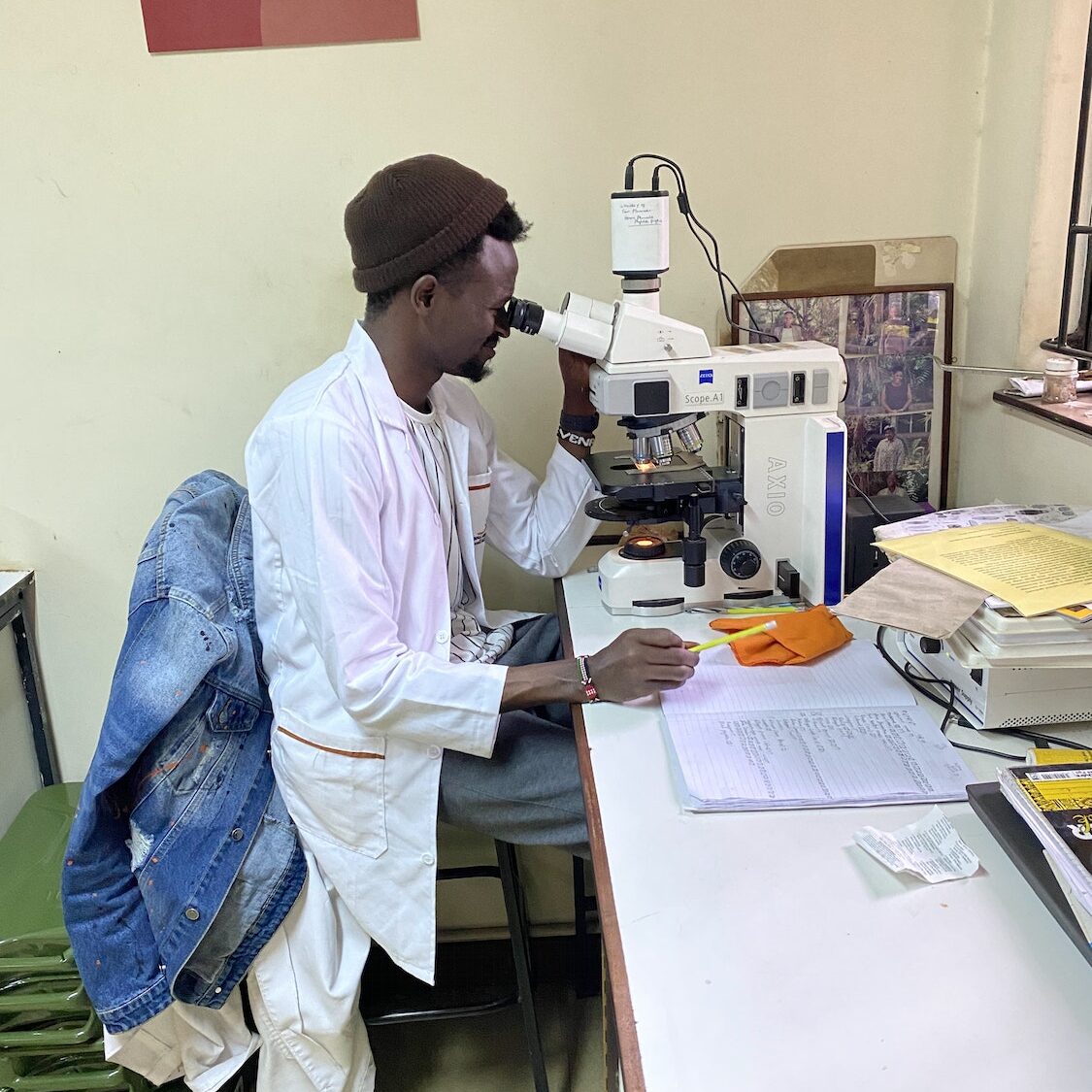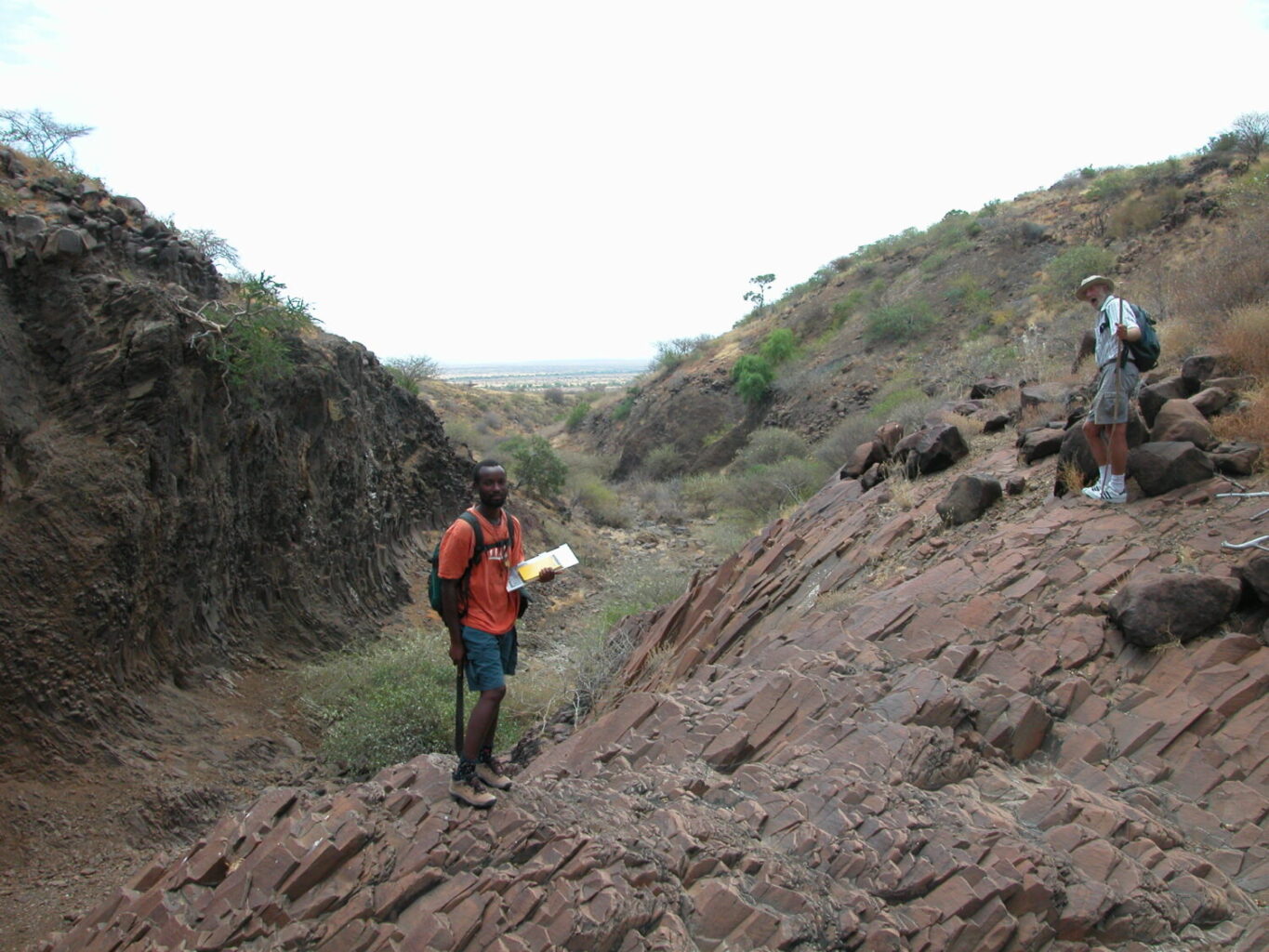FOR GEOLOGY AND BOTANY RELATED TO HUMAN ORIGINS
Francis H. Brown African Scholarship
The purpose of the Francis H. Brown African Scholarship Fund is to expand human knowledge and scientific interest in earth sciences and botany related to human origins by providing financial assistance to East African researchers and students pursuing research in these areas. The fund is further intended to support research that builds on the work of Dr. Francis H. Brown and builds capacity in the earth and botanical sciences in East African institutions and countries.

“The Francis H. Brown African Scholarship is a much-needed resource for aspiring East African earth scientists and botanists. Our father believed deeply that Africans should be given the same opportunities to research our shared history and be stewards of the natural wonders that reside in their region. This fund represents his commitment to making his vision a reality.”
Erica Brown Gaddis
Elise Brown Ersoy
Daughters of Francis H. Brown, Leakey Foundation Trustees

Photo by Husna Mashaka.
Information for Applicants
This scholarship is open to students or researchers of African heritage who are citizens of Kenya, Ethiopia, Tanzania, Uganda, South Sudan, Djibouti, Rwanda, Burundi, Somalia or Eritrea who (a) are pursuing a graduate degree at an accredited university, preferably from, but not limited to, an institution located in sub-Saharan Africa or (b) have completed their doctoral degrees not longer than ten (10) years prior to the time of application for funding from this source.
Applicants must be pursuing research in earth sciences and/or botany related to human origins. Applicants shall demonstrate a commitment to a career in their field of study with an emphasis on research and teaching in his/her country of citizenship following the completion of his/her degree.
When to apply
- January 10 for spring cycle
- July 15 for fall cycle
Amounts
- Up to $30,000
Who can apply
- Graduate students or post PhD researchers of African heritage who are citizens of Kenya, Ethiopia, Tanzania, Uganda, South Sudan, Djibouti, Rwanda, Burundi, Somalia, or Eritrea.
- Applicants must be pursuing education or research in earth sciences or botany related to human origins.
Eligible expenses
- The grant can only be used for expenses directly related to your research and essential to the project such as travel, living expenses during fieldwork, supplies, and research expenses.
- The grant will not cover institutional overhead, salary, benefits, or publication costs.
How to apply
During the application process, you will be asked to fill out forms in our online application system and upload attachments with your application.
The application has the following elements:
- Written proposal
- Budget
- Budget Justification
- Curriculum Vitae (CV)
- Sponser Letter
- Photo
- References/Citations for your proposal
Please read and follow the instructions below for each of the attachments. Click here if you would prefer to download the instructions as a PDF.
Budget and Budget Justification
Please click here to download the budget worksheet.
Allowable Budget Expenses
- Data analysis costs to which the applicant might not otherwise have access, including, but not limited to elemental, isotopic, geological mapping technology, or genetic analysis of geological or botanical specimens. Analytical costs are expected to be charged at in-house rates in cases where analytical costs are different for internal vs. external laboratory users. We intend the applicant to participate in the measurements to enhance their capabilities and not simply send materials to a laboratory for analysis.
- Travel costs for the applicant to a university for data or sample analysis. Funding may be used for the cost of economy airfare, economy lodging, or subsistence while visiting an institution where the measurements are made.
- Travel costs for the applicant to a field site to collect materials for analysis which would otherwise not be available. Such travel should be less than two weeks unless the fieldwork warrants a longer trip, and the travel is for the express purpose of necessary research such as fieldwork, sample collection, or mapping. Such costs may include economy airfare, food, economy lodging, vehicle rental and maintenance, fuel, a local competitive salary for temporary field assistants, and costs of visas or other documents necessary for travel.
- Minor supply items such as sample containers (e.g., bags, bottles, markers, etc.).
- Tuition, student fees, insurance, books, and other relevant categories of expenditure for a recipient of support from the Francis H. Brown African Scholarship Fund.
- Modest stipend to the recipient.
Excluded Budget Items
No funds shall be provided from this fund for:
- Salary or wages for the applicant, coworkers, or assistants other than those specified above.
- Institutional “bench” fees or overhead.
- Travel to conferences or professional meetings.
- However, if research travel coincides with a professional society meeting and does not incur additional costs for the traveler, there is no objection to using funds for both purposes.
Budget Justification
In order for our reviewers to understand your financial need, please provide a comprehensive budget justification for the detailed budget you provided. This should include an explanation of each item listed on your budget worksheet, with specific details on travel, project expenses, and lodging estimates. For example, describe how you determined the flight cost or arrived at your living expenses.
In addition, please outline any other sources of funding you are applying for or have already secured, including support from your host institution. Indicate how long these funds will be available and your funding prospects for future years of your education. This will give reviewers a full picture of your financial situation and the sustainability of your funding over time. An example Budget Justification can be found in the Francis H. Brown African Scholarship Application Instructions packet.
Supporting Documents and Attachments
Curricula Vitae
Please upload your Curriculum Vitae (CV) and your advisor’s CV, each limited to two pages and in PDF format.
Sponsor Letter of Support
Your sponsor’s letter of support may be uploaded as a PDF. If your sponsor prefers to send the letter directly to us, it may be sent to grants@leakeyfoundation.org. For those with a current Francis H. Brown African Scholarship requesting funds for another year, the sponsor’s letter of support should be a progress report from the sponsor.
Applicant Photo
Please include a photo of yourself. This photo may be a. jpg or .tiff or .png file.
References
If you would like to include references, please upload them in PDF format, limited to two pages. References should be formatted in APA style. Examples of APA reference style are available at Purdue.edu.
If you have any questions, please email grants@leakeyfoundation.org.
Reporting Requirements
For grants lasting longer than one year, an annual progress report and a recorded presentation (e.g., audio recording, YouTube video, narrated PowerPoint, etc.) are due one year and ninety days after the grant start date, and every year thereafter until the end of the support period.
Within 90 days of the end date for the grant, the following are required:
- A final report summarizing all work not to exceed 15 pages.
- If the grantee holds more than one FBASF grant or is requesting funds for an additional period, then a progress report is required in lieu of a final report.
- A recorded presentation (YouTube video, recorded talk, narrated slide presentation, etc.).
- A final expense report submitted by the grantee’s institution.
- At least one photo (preferably from the field).

Start your application
Download the application materials and begin your online application.
About Francis H. Brown
Dr. Francis H. Brown (1943-2017) was a geologist whose study of the Omo-Turkana basin provided the basis for the timeline of human evolution. He devoted more than fifty years to mapping and analyzing the geology of northern Kenya and southern Ethiopia, and his work provided a way to place fossil finds in chronological order.
During his time working in Ethiopia and Kenya, Frank Brown became an expert in not only the geology but also the plant life of the Omo-Turkana basin. He studied several languages, including Kiswahili, Kikamba, Kikuyu, and Turkana. He also sponsored the education of many university students from Ethiopia and Kenya.
He taught at the University of Utah where he served as chair of the department of geology and geophysics and received the Rosenblatt Prize, the highest honor of the University of Utah. He also served as co-chair of The Leakey Foundation’s Scientific Executive Committee from 1993 until his untimely death in September 2017 and he was a deeply beloved member of the Leakey Foundation family. We are honored to work in partnership with his daughters, Elise Brown Ersoy and Erica Brown Gaddis, to fulfill one of Frank’s wishes, the creation and funding of the Francis H. Brown African Scholarship Fund.
Read more about Dr. Frank Brown and his many important contributions to science.

View past Francis H. Brown African Scholarship recipients in the grantee database.